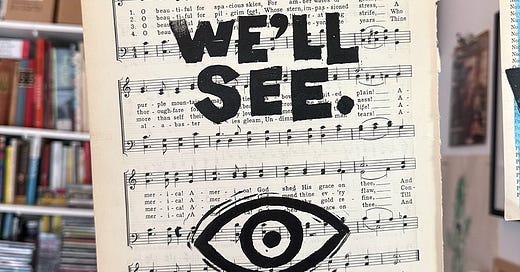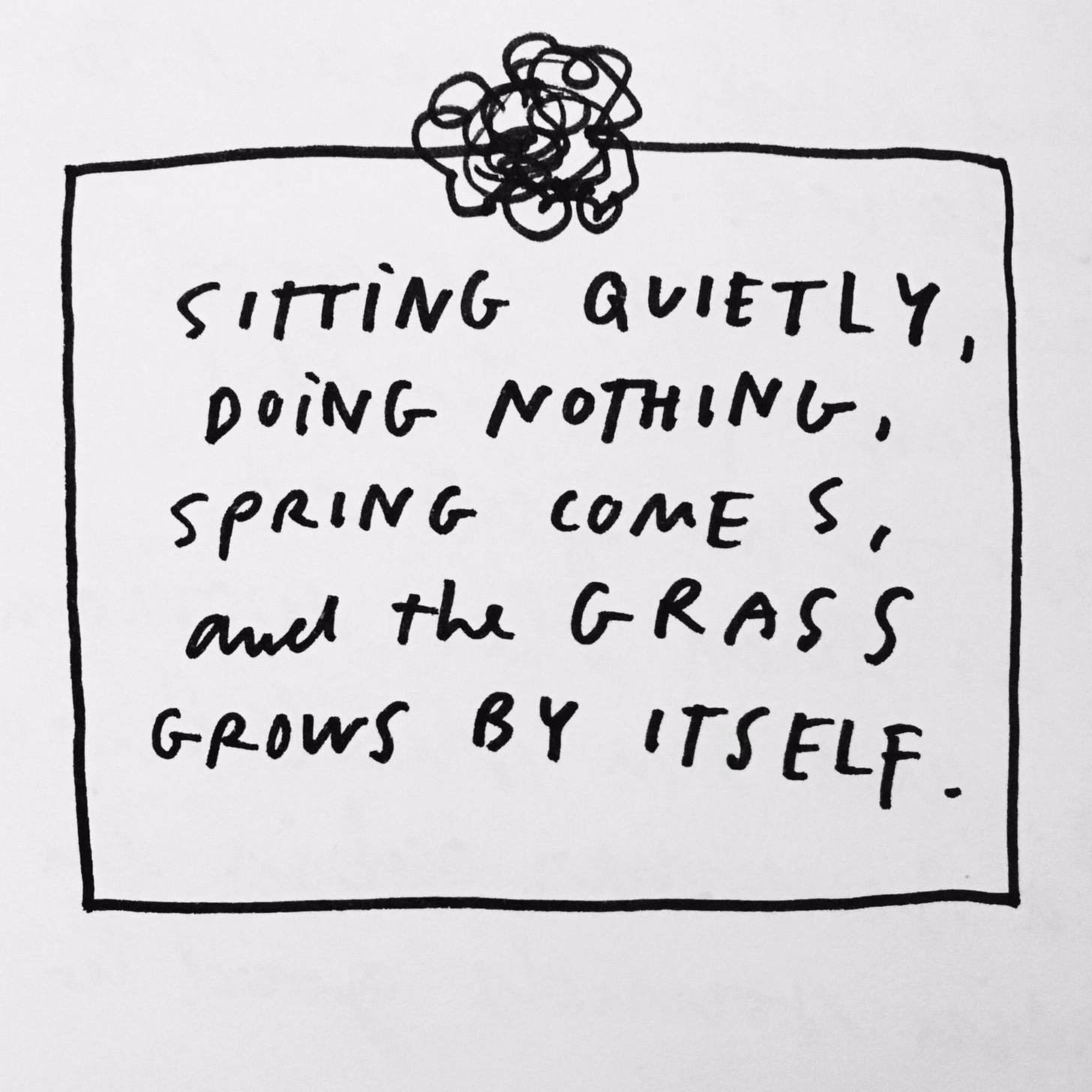I spent an abnormal amount of time online this week reading articles about AI, the decline of western civilization, etc. I don’t recommend it! (Next week I will stick to reading books instead.)
Here are 10 things I thought were worth sharing:
“We’ll see” is the refrain in the Charlie Wilson’s War version of the 2000-year-old Chinese parable about the old man who lost his horse. (Bluey used the same refrain, while Alan Watts used “Maybe.”) It’s a favorite parable of mine and one I think about often.
Here’s how Ursula K. Le Guin’s translation of the Tao Te Ching puts it:
Alas! Misery lies under happiness,
and happiness sits on misery, alas!
Who knows where it will end?
Nothing is certain.
The normal changes into the monstrous,
the fortunate into the unfortunate,
and our bewilderment goes on and on.
(I am someone who believes in embracing bewilderment.)“Is this the worst-ever era of American pop culture?” is a look at four individual takes on our current moment: stagnation, cynicism, isolation, and acceleration. I already read Ted Gioia, but I was new to one of the musicians profiled, Jaime Brooks, who wrote a doomer piece I liked on Chuck Berry, Ricky Martin and the fate of the record business. I also liked the contrast between 25-year-old writer Kieran Press-Reynolds and his dad, writer Simon Reynolds, who wrote the book Retromania: Pop Culture's Addiction to Its Own Past. (I think it’s totally okay to be a “baffled elder,” but even better is the “curious elder.”) As another advertisement for myself, I can’t help but quote writer Spencer Kornhaber’s last line: “When you tune in to the creativity that is still pulsing in these disorienting times, you can hear the story that most needs telling: Keep going.”
“Public media is facing multiple serious threats. The Administration has proposed eliminating federal funding in its annual budget request, issued an Executive Order to block support for PBS and NPR, cancelled grants that support the creation of children's educational programming, and plans to claw back funding approved by Congress.” Protect public media! (I see no decency in the current administration to appeal to, but it still feels good to watch Mr. Rogers defend PBS to Congress in 1969.)
Why not lighten things up with some Philip Larkin poems? (Ha!) “The trees are coming into leaf,” “The mower stalled, twice…” and “I work all day, and get half-drunk at night.”
Okay, maybe Larkin won’t help. But summer is coming, and it’s the perfect season for reading Carl Hiassen. “The archetype Hiaasen helped invent, the Florida Man, was once just an overconfident moron who, say, drowned while wrestling a gator for his beer. Now America is run by Florida Men.” Carl Hiassen is our era’s great satirist because we’re all living in one of his novels. (You could start with his forthcoming novel, Fever Beach, or you could go back to the beginning and read Tourist Season.)
“If you ever thought coming up with an idea for a book was hard, robots are here to remind you that it’s actually very easy, because books are mostly stupid — but so is your whole career, when viewed through the eyes of a loving/helpful/evil robot!” Heather Havrilesky chats with a robot.
“The work of writing a book is not the selection of suitable words,” writes John Higgs. “The work is the task of engaging another mind. It is a constant dance between understanding your subject and understanding how a future reader will react to it - a reader you can never know, but which you still have to intuit.”
“In a world of AI slop, something hand-crafted and made with care stands out like a sore thumb. It’s like seeing a home-cooked meal on the McDonald’s menu. It might actually be easier to stand out in that world.” An interview with indie game maker Neal Agarwal, creator of Neal.fun. (My son and I often send his games to each other — thanks to Laura Olin for the link.)
A professor recently wrote to me after reading my book Steal Like an Artist and asked me if I had any advice for young graduating artists.
Here’s what I wrote back, lightly edited:
“All the advice and encouragement I have is there in the book, but I would highlight one particular piece of advice, from my hero, Lynda Barry: ‘In the digital age, don't forget to use your digits.’ I believe that people in their generation would do well to learn the magic of making things by hand and how the hand talks to the brain as much as the brain talks to the hand. This is what the makers and users of artificial ’intelligence’ miss: human intelligence is an embodied intelligence.”
Thanks for reading. This hand-rolled, ad-free, AI-free, anti-algorithm publication is made possible thanks to the love and support of readers. If you want to help keep it going, become a paid subscriber:
xoxo,
Austin







In reference to your paragraph on Public Media, it is with a heavy heart, that I pass on this information. The W. Post said this morning, that the head of the Library of Congress (LC), Dr. Carla Hayden has been fired by Trump. She had been appointed by Obama, and was the first woman, first black and first librarian appointed to head the Library. Previous heads had been either scholars or historians.
What many people don't know is that after the War of 1812, when much of Wash DC had been burned down (including the Library of Congress), Thomas Jefferson offered to sell his whole Library to congress to replace the burned books. They took him up on his offer. The LC is the largest Library in the world.
"In the digital age, don't forget to use your digits." Such wonderful timing to read this -- I just floated the idea of running a zine workshop to my local library, and they said yes! Can't wait to spread the magic of making things by hand. I'll have to write down these quotes to share with folks at the workshop. Thank you for this, Austin!